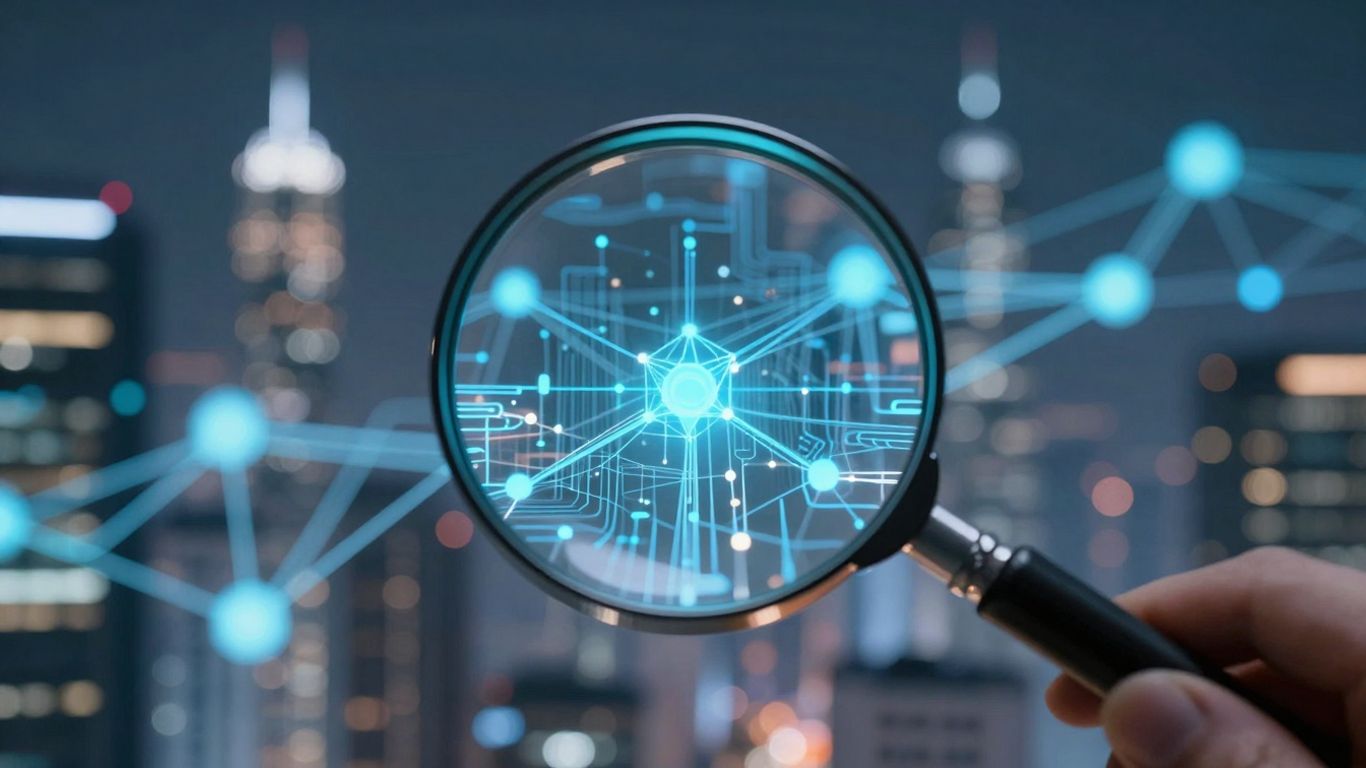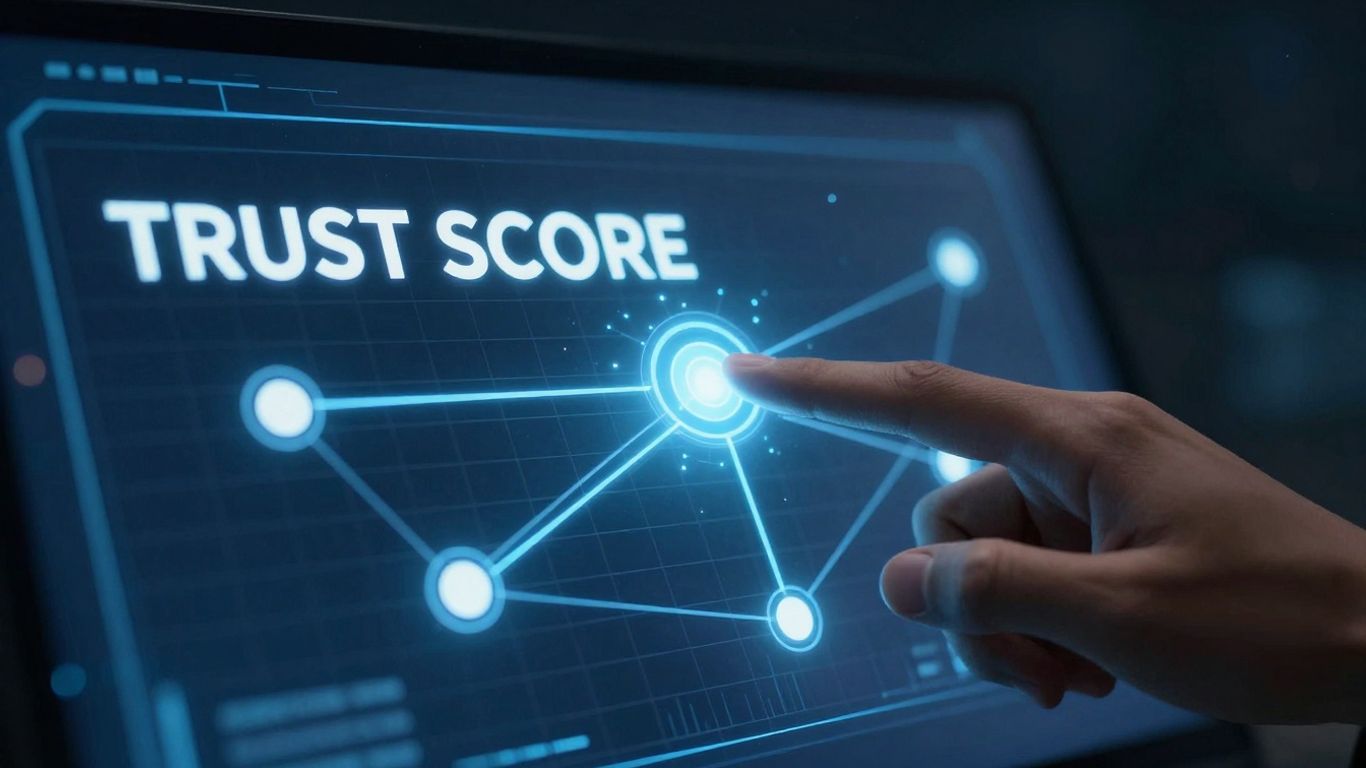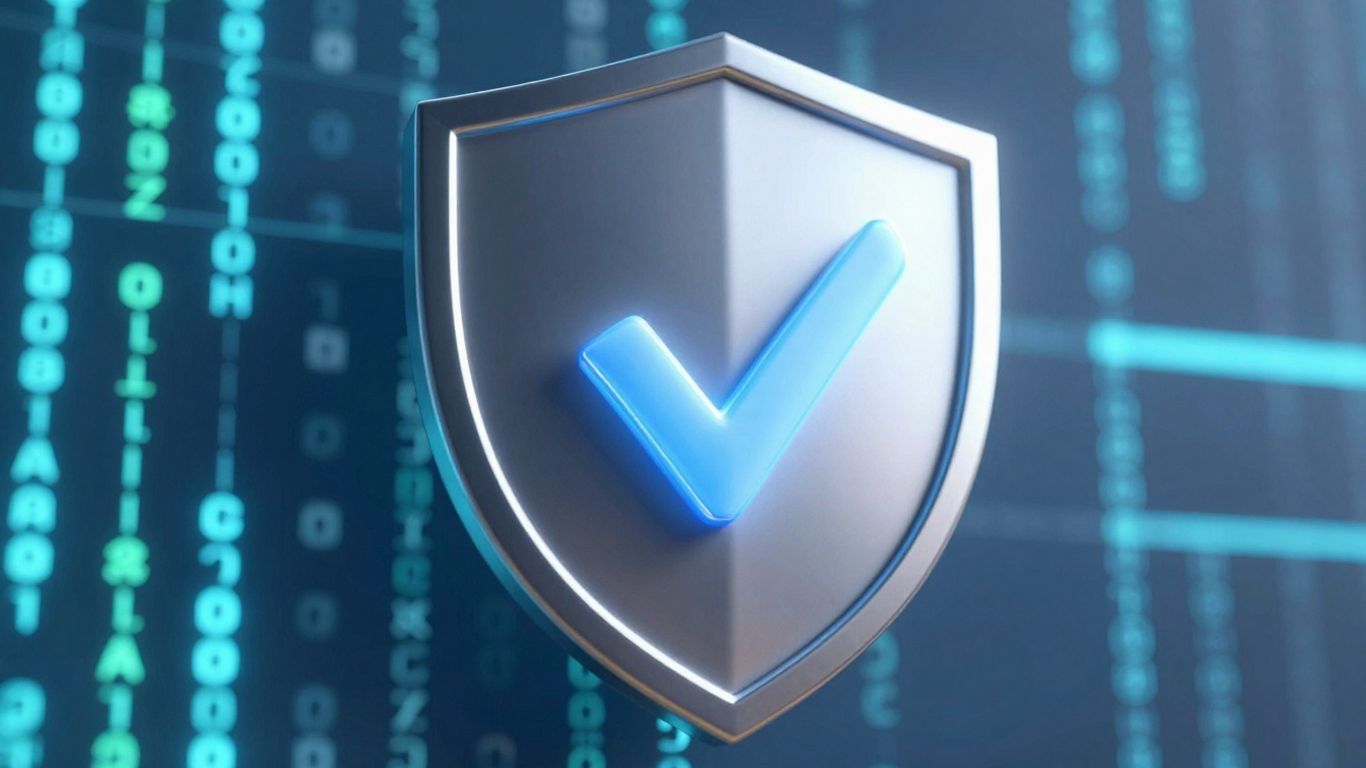[ newsletter ]
Stay ahead of Web3 threats—subscribe to our newsletter for the latest in blockchain security insights and updates.
Thank you! Your submission has been received!
Oops! Something went wrong. Please try again.
Discover the top 10 blockchain security tools for 2025 to safeguard your projects and enhance security.





As blockchain technology continues to grow, securing these systems becomes increasingly vital. The landscape of blockchain security tools is evolving rapidly, and businesses need to stay ahead of potential threats. In this article, we will explore the top 10 blockchain security tools you should consider in 2025. Each tool offers unique features to help you protect your digital assets and ensure the integrity of your blockchain projects.
CertiK has really made a name for itself in blockchain security. They're all about smart contract audits and keeping entire platforms safe. They use some pretty advanced AI to find weak spots and watch things in real-time. It's like having a super-smart security guard for your blockchain stuff. Their tools are automated, which makes things faster and more reliable for blockchain projects. They've got different security services for everyone, from small startups to big companies. Plus, they're known for being open and coming up with new ideas, which is why a lot of people trust them to protect their blockchain networks. The conference in Toronto will take place from May 14 to 16, 2025.
CertiK's AI-driven approach is a game-changer for blockchain security.
Here's a quick look at what CertiK brings to the table:
Blockchain security is a big deal, and CertiK is definitely one of the main players. They're always coming up with new ways to keep things safe, and that's exactly what you want in this space. It's not just about finding problems; it's about stopping them before they even happen. They also offer [insurance against exploits].
Quantstamp is a big name in the blockchain security world. They focus on auditing blockchain protocols and decentralized applications (dApps). What does that mean for you? Well, they're known for really digging into the code to make sure everything is secure and reliable. They also work with different blockchain systems, which is important because things are always changing in this space. It's good to know they can handle different setups.
Quantstamp isn't just about finding problems; they also try to stop them before they even happen. They look for potential risks before a project is launched. Plus, they've built a solid reputation, so lots of different industries trust them. That's a good sign when you're looking for someone to help keep your blockchain stuff safe. As blockchain technology evolves, it's good to have companies like Quantstamp around.
Think of Quantstamp as a security guard for your blockchain projects. They check everything carefully to make sure no one can sneak in and cause trouble. They're like the experts you call when you want to be extra sure your stuff is safe.
Here's a quick look at some of the good and not-so-good things about Quantstamp:
MythX is a security analysis tool designed for Ethereum Virtual Machine (EVM) smart contracts. It helps developers identify vulnerabilities before deployment. Think of it as a safety net, catching potential issues before they become real problems. It's like having a second pair of eyes, but one that's specifically trained to spot security flaws in your code.
MythX uses a combination of static analysis, dynamic analysis, and symbolic execution to detect a wide range of security vulnerabilities. This multi-pronged approach allows it to find issues that might be missed by other tools that rely on a single analysis method. It's like having a detective that uses multiple techniques to solve a case, ensuring that no stone is left unturned.
Here's a quick rundown of what MythX offers:
Using MythX is like having an automated security expert on your team. It helps you catch vulnerabilities early in the development process, reducing the risk of costly exploits and ensuring the security of your smart contracts. It's a tool that can give you peace of mind, knowing that you've taken steps to protect your code and your users.
Mythril is another symbolic execution tool designed for smart contract security analysis. It explores multiple execution paths to detect vulnerabilities like reentrancy and integer overflows. It streamlines development for blockchain applications.
Okay, so Slither is up next. I've been hearing a lot about this one lately. It's a static analysis tool, which basically means it looks at your code without actually running it. Think of it like a super-smart spell checker, but for security vulnerabilities. It's pretty cool because it can catch a bunch of common issues before they even have a chance to cause problems.
Slither is a static analysis framework designed to find vulnerabilities in Solidity source files. It supports the detection of over 80 vulnerability classes and can be extended. It can detect things like reentrancy bugs, block data dependency issues, and even suicidal contracts (yikes!).
One thing to keep in mind is that Slither, like other static analysis tools, can sometimes give you false positives. It might flag something as a potential issue when it's actually not a big deal. So, you still need to use your brain and double-check its findings. But overall, it's a solid tool to have in your arsenal. It's also worth noting that automated audits can help find these vulnerabilities.
Using Slither is like having a second pair of eyes (a very, very smart pair of eyes) looking over your code. It won't catch everything, but it can definitely help you avoid some common pitfalls and write more secure smart contracts.
Here's a quick rundown of some of the things Slither can help you with:
OpenZeppelin is a big name when it comes to keeping Ethereum smart contracts secure. They're known for having solid tools and a helpful community, which is great for blockchain developers. It makes creating secure smart contracts easier and has lots of documentation for both new and experienced developers. The platform also does security audits, which makes it even more useful. OpenZeppelin's focus on security and developer education makes it popular with Ethereum developers.
Here's what OpenZeppelin brings to the table:
Using OpenZeppelin is like having a security blanket for your smart contracts. It doesn't guarantee that your code will be perfect, but it definitely gives you a head start and helps you avoid common pitfalls. Plus, their community is super active, so you can always find help if you get stuck.
Okay, so Fortify. I've heard some buzz about this one. It's not exactly new on the scene, but it's been making some waves in the blockchain security space. Let's get into it.
Fortify is a static code analysis tool that helps developers identify security vulnerabilities in their code. It's like having a super-smart code reviewer that never gets tired and knows all the tricks hackers might try. It's designed to catch issues early in the development cycle, which can save a ton of time and money down the road. Think of it as preventative medicine for your blockchain projects.
Fortify helps you find vulnerabilities before they become problems.
Here's a quick rundown of what Fortify brings to the table:
Using Fortify is like having a safety net while you're building your blockchain applications. It helps you catch those sneaky bugs and vulnerabilities that could otherwise lead to disaster. It's not a silver bullet, but it's a solid tool to have in your arsenal.
I think the best part about Fortify is its ability to provide detailed reports. It doesn't just tell you there's a problem; it shows you exactly where it is and explains why it's a risk. This makes it easier to understand the issue and fix it quickly. Plus, it helps you learn more about secure coding practices, which is always a good thing. It's a solid choice for blockchain security automation.

ChainSecurity offers services to audit smart contracts and blockchain systems. I think what sets them apart is their academic background; they come from ETH Zurich, which is a pretty reputable place. They aim to bring a more scientific approach to blockchain security, which is something I can appreciate. It's not just about finding bugs, but also about understanding why they exist and how to prevent them in the future.
I've seen them mentioned in a few different contexts, usually related to formal verification and advanced security analysis. It seems like they're targeting projects that need a really high level of assurance, which makes sense given their background. They are one of the leading blockchain security tools in the market.
One thing I find interesting about ChainSecurity is their focus on not just finding vulnerabilities, but also providing actionable insights. It's not enough to just say "there's a bug here"; you need to explain how to fix it and how to avoid similar issues in the future. That's the kind of approach that can really improve the overall security of the blockchain ecosystem.
Okay, so Securify is another tool that's been getting some buzz. It's designed to automatically find vulnerabilities in your smart contracts. I think what sets it apart is its focus on identifying security issues by analyzing the code's behavior rather than just looking for specific patterns. It's like, instead of just checking if you locked the door, it watches to see if someone can still get in through the window.
Securify uses a formal verification approach, which means it tries to mathematically prove that your contract is secure. This can be pretty powerful, but it also means it can be a bit slower than some of the other tools out there. Still, if you're serious about security, it's worth checking out.
Securify is a tool that I've seen mentioned a lot in security circles. It's not always the easiest to use, but the depth of analysis it provides can be really valuable, especially for complex contracts. It's definitely one to consider if you're looking for a more rigorous approach to smart contract security.
Here's a quick rundown of some of its strengths:
Securify is one of the blockchain security tools that can help you sleep better at night, knowing you've done your best to secure your smart contracts.

Okay, so ConFuzzius. It's one of those tools that's been around for a bit, and while it might not be the flashiest, it's still got some value. It's a fuzzing test tool, which means it throws a bunch of random inputs at your smart contracts to see if anything breaks. Think of it like a toddler with your code – if it can survive that, it's probably pretty solid.
Now, ConFuzzius isn't perfect. It's not going to find every single vulnerability out there, especially those sneaky logic errors that require a human to really understand what's going on. But for catching basic stuff, it can be pretty useful. Plus, it's relatively easy to use, which is always a bonus.
I remember one time, a friend of mine used ConFuzzius on his smart contract, and it actually caught a really dumb mistake he'd made. He was so embarrassed, but also super grateful because it saved him from a potential disaster. So yeah, sometimes the simplest tools are the most effective.
It's worth noting that there are newer fuzzing tools out there, like Diligence Fuzzing, that might offer more advanced features or better performance. But ConFuzzius is still a solid option, especially if you're just getting started with smart contract security. It's like that old, reliable car you keep around – it might not be the fastest or most stylish, but it'll get you where you need to go.
EtherScan is like the Google for blockchains, specifically Ethereum. It's not exactly a security tool in the same vein as a static analyzer or fuzzer, but it's an invaluable resource for anyone involved in blockchain security. Think of it as your window into the blockchain's activity, allowing you to see what's happening in real-time and dig into the details of transactions, contracts, and accounts. It's a must-have for understanding the flow of funds and identifying potential issues.
Here's why EtherScan is so important:
EtherScan is more than just a block explorer; it's a critical tool for understanding the inner workings of the Ethereum blockchain. It provides transparency and allows security researchers, developers, and users to make informed decisions. It's like having a detective's magnifying glass for the blockchain.
EtherScan also provides a wealth of data and analytics, such as gas prices, network activity, and token information. This information can be used to identify trends and potential security risks. For example, a sudden spike in gas prices might indicate a network congestion issue or a potential attack. It's also useful to use blockchain risk assessment tools to get a better understanding of the risks.
EtherScan is a free and publicly available resource, making it accessible to anyone who wants to learn more about the Ethereum blockchain. While it doesn't actively scan for vulnerabilities, it provides the data and tools needed to conduct your own investigations and assessments. It's an essential part of any blockchain security toolkit.
As we wrap up, it's clear that keeping your blockchain projects secure is more important than ever. The tools we've discussed are not just fancy gadgets; they’re essential for protecting your assets and ensuring smooth operations. With the threat landscape constantly changing, having the right security measures in place can make all the difference. Whether you're a developer, a business owner, or just someone interested in blockchain, investing in these security tools is a smart move. They help you stay ahead of potential risks and build trust with your users. So, as we head into 2025, make sure you're equipped with the best tools to safeguard your blockchain ventures.
Blockchain security involves protecting data and transactions in blockchain networks to prevent hacking and fraud.
Security tools help find and fix weaknesses in blockchain systems, making them safer for users and developers.
Common threats include hacking attempts, bugs in smart contracts, and manipulation of data.
Automation allows for constant monitoring and quick responses to threats, which helps keep the blockchain safe.
Look for tools that can audit smart contracts, detect vulnerabilities, and provide real-time monitoring.
Many security tools are designed to be user-friendly, making it easier for developers to secure their blockchain projects.


